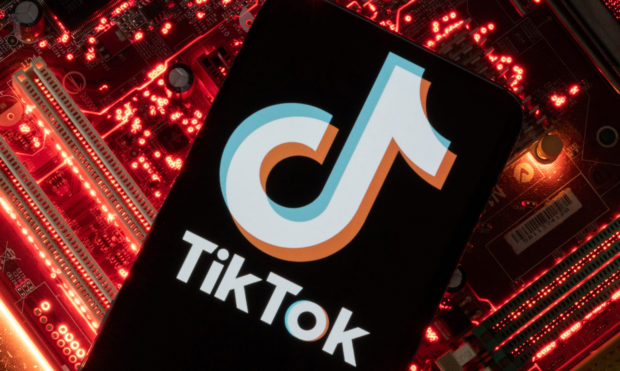Content creators worry about miseducation in a world without TikTok

LOS ANGELES—It was December 2020 during the height of the COVID-19 pandemic when “Ms James,” a public school teacher in a small rural Southern town, realized that her virtual students were not watching the grammar lessons she assigned them. That is, until she posted them on TikTok.
Everything changed when she learned about the social media platform and created her profile as @iamthatenglishteacher.
“In a day, I had 1,000 followers, in a week I had 10,000, and in six weeks I had 100,000 followers,” she told Reuters.
“Within six months, I had a million and a half,” added the teacher of 15 years, who asked not to use her full name for privacy.
Now, she has 5.8 million followers on TikTok, but her educational content now faces a threat.
US action vs app
The US House of Representatives overwhelmingly passed a bill last week that will give TikTok’s Chinese owner ByteDance about six months to divest the US assets of the short-video app, or face a ban. It’s the greatest threat since the Trump administration to the app, and to the content creators who reach wide audiences and often earn their living on it.
“When you talk about the ban, you are talking about taking access to high-quality educational videos away from people who have used it to enhance their education,” Ms James said.
While her TikTok lessons are used by students ranging from elementary school to college, most of her followers are English as a second language students from the Philippines as well as homeschooled students.
From videos on subject-verb agreement to vocabulary, Ms James believes that her legacy is to help the world through education and fears a ban would be detrimental.
“I think that TikTok is a wealth of knowledge,” NaomiHearts, a content creator known by her 1.1 million followers for her TikTok videos about fatphobia and trans Chicana identity, told Reuters.
She also fears that the ban will silence diverse, informative content, including her own.
Data in danger
However, University of Southern California (USC) professor Karen North warns her students that personal data is in danger on TikTok.
“My concern with TikTok is less about what information is provided or manipulated or whether it’s skewed toward one message or another,” North, the founder and former director of USC Annenberg’s Digital Social Media program told Reuters.
“It’s more toward what kind of personal information are people voluntarily giving up to an entity that does not have the same standards for privacy that we (the United States) do. That’s the big issue with TikTok,” she added.
North, a former White House employee for the Clinton administration at Capitol Hill, worries the Chinese company’s use of functions like facial recognition and location tracking creates threats that outweigh the engaging benefits of the app, including in academia.
Content creator Dr. Anthony Youn, known for his educational TikTok videos exploring his profession as a plastic surgeon, believes the ban would have significant drawbacks on information accessibility.
“There’s a huge segment of TikTok where you get your news, so it’s about being educated,” Dr. Youn, who has 8.4 million followers, told Reuters.
Similarly, NaomiHearts feels the ban is less about protecting data, as other apps also collect personal information, and more about denying consumers informative content.